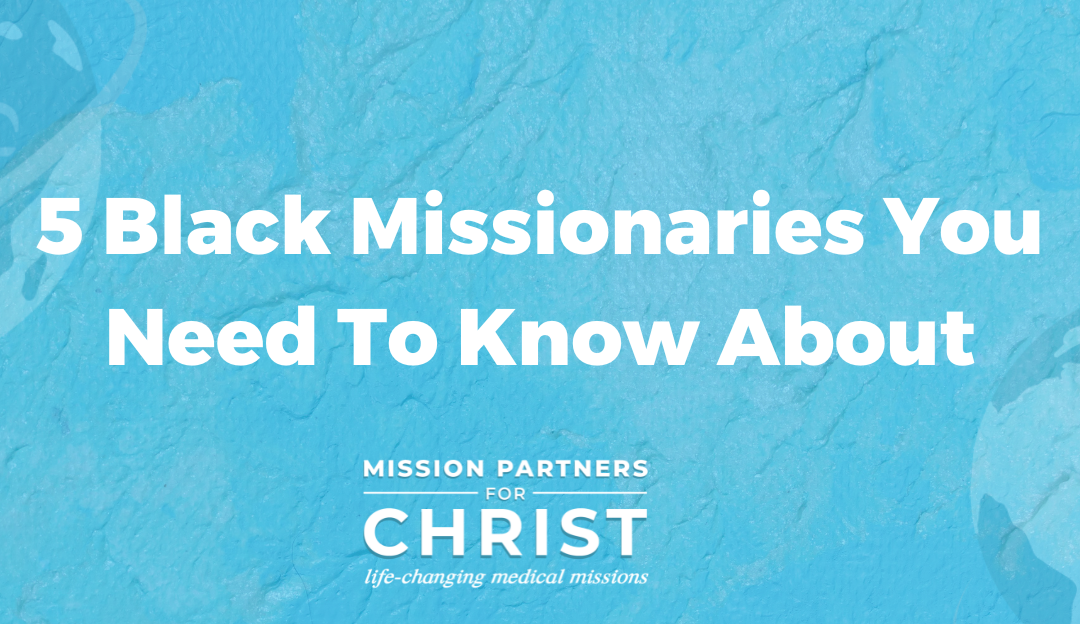As you likely are already aware, February is Black History Month! It’s a time when we pause to reflect on the many great people and achievements from African Americans worldwide. To that end, Mission Partners For Christ would love to take a few moments with all of you to acknowledge all of the work that African Americans have poured into the ministry of missions.
Were you aware that the world of missions, as we know it today, was built upon the foundation laid by Black missionaries? It’s true! Sadly, their amazing achievements in missions have long been overlooked, or even erased entirely, but without their compassionate hearts going where God called them to go, missions today would look very different.
So, today, we are highlighting just five people who helped make missions possible for us today.
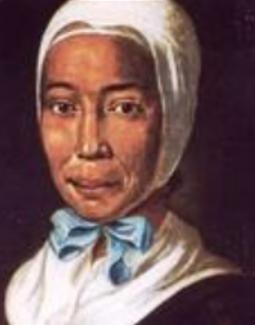
Rebecca Protten (1718-1780)
Rebecca Protten, a woman of African and European descent, is commonly referred to as “The Mother of Modern Missions.”
Protten was born into slavery in Antigua in 1718. At the tender age of seven years old, Protten is said to have been kidnapped from her home and sold as a slave in what is currently known as the British Virgin Islands. It was there, after an encounter with Moravian believers, that Protten first met Jesus and began to dream of a future for herself in missions.
Protten was granted freedom from slavery when she was 12 due to the death of her slaveowner. After gaining freedom from slavery, Protten wasted no time in sharing the gospel with others.
St. Thomas, a Danish sugar colony that she called home as a girl, became Protten’s first focus as she began her missionary career. She poured her time and energy into ministering to the enslaved community there, and held a very special place in her heart for enslaved women.
Briefly imprisoned for sharing the gospel, the Moravian missionaries, with whom she worked, sent her to serve in Germany.
She spent two decades in Germany with her husband, during which time she became a deaconess in her church community. This made her one of the very first Black female church leaders of her time.
After the death of her husband, Protten relocated to the Gold Coast of Ghana, her ancestral home. She served there for 17 years with her second husband. Together they founded a school in Christianborg, which was a central location for the Transatlantic slave trade. She remained there until her death in 1780.
Sources: https://nabconference.org/2022/02/rebecca-freundlich-protten/, https://faithfullymagazine.com/remember-rebecca-protten-impacted-christianity/, https://www.moravian.org/ccd/2020/11/27/coffee-with-moravian-ancestors-rebecca-protte
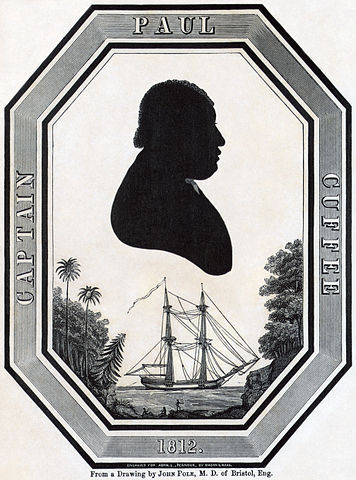
Paul Cuffe (AKA Paul Cuffee) (1759-1817):
Paul Cuffe, born January 17, 1759, to an emancipated slave (Cuff Slocum) and a Native American woman (Ruth Moses), was the seventh child and fourth son. Cuffe grew up on Cuttyhunk Island in Massachusetts where his family managed properties for the Slocum families from Dartmouth.
After his fathers death in 1772, Cuffe set off on a new career path. At a mere 14 years of age, Cuffe left his family and life behind to join a whaling ship crew bound for the West Indies. He would embark on three whaling ship missions in total, and subsequently lost his personal ship to pirates, as he attempted to get supplies to the residents of Nantucket who were impacted by war.
As the years passed, Cuffe’s keen mind for business aided him in becoming one the richest African American men in the USA, and he intended to use his money for good. He funded the building of many important buildings, such as a smallpox hospital, an integrated school, and a Quaker meeting house where he was a devoted attendee.
In 1810, Cuffe partnered with British abolitionists to found a colony for freed slaves, from both the USA and Britain, in Sierra Leone. He sailed to Sierra Leone to meet with the people living in the colony to see what improvements could be made to empower the community. Over the next 5 years, he would take several trips to Sierra Leone to help with quality of life improvements and to transport newly freed slaves.
“As a private man, he was just and upright in all his dealings, an affectionate husband, a kind father, a good neighbor and a faithful friend. Pious without ostentation, and warmly attached to the principles of Quakerism, he manifested, in all his deportment, that he was a true disciple of Jesus; and cherished a charitable disposition to professors of every denomination, who walked according to the leading principles of the gospel.” – A brief biography
Sources: https://paulcuffe.org/biography/, https://en.wikipedia.org/wiki/Paul_Cuffe
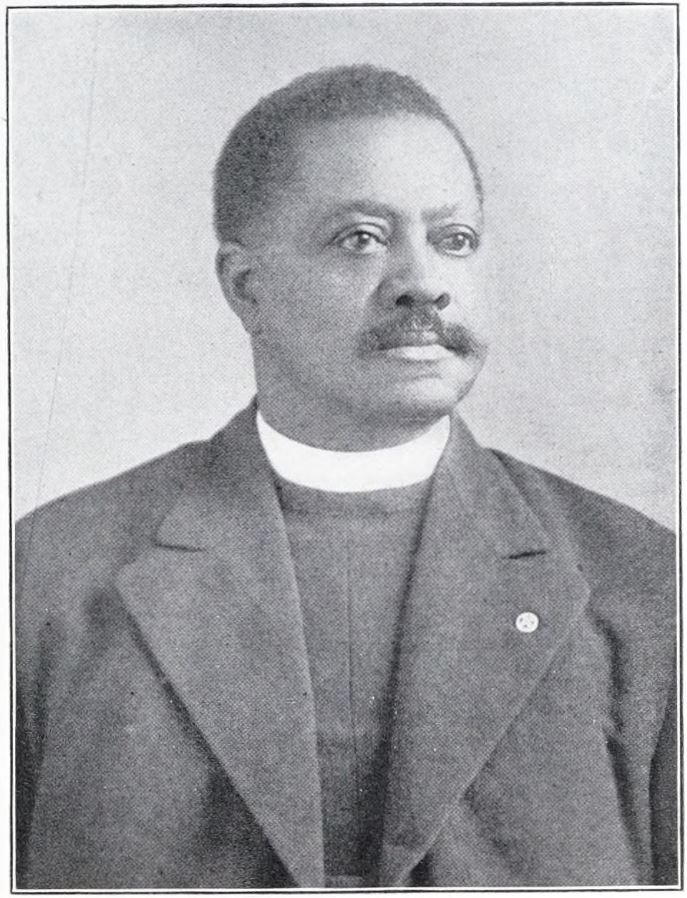
Levi J. Coppin (1848-1924)
Born in Fredericktown, Maryland on Christmas Eve 1848, Levi J. Coppin was one of six children born to John and Jane Lily Coppin. As a child, Coppin’s mother instilled in him the importance of education and faith as ways to thrive in a world where enslaved and free Black people were held back by the color of their skin. She illegally taught her son to read and write at a young age and also secretly held classes to offer education to both free and enslaved people of the Black community.
When Coppin turned 17, he began to take a special interest in the Word of God. As he studied the Scriptures God began to call him to become a pastor. He followed that call by joining the Bethel African Methodist Episcopal church, and he became a licensed preacher.
Over the course of his life, Coppin held many influential positions:
- Pastor in the Bethel AME Church from 1881-1883
- Editor of the African Methodist Episcopal Church Review 1888-1896
- Founder and teacher of the American Negro School in Washington DC 1897
- AME bishop for South Africa in 1900
Coppin had always dreamed of going to serve in Africa, writing in his autobiography, he said,
“If one would go to Africa simply on a visit, it would prove to be rather expensive, requiring much time and money, neither of which I had at my command to spare in amounts so large. So, like many other desires that possessed me from time to time, I had about decided to abandon the hope of ever standing upon African soil…Well, it so happened that I was elected at a time that the Church was about to extend its work in Africa. This was the opportunity for me to realize my fondest dream. Five Bishops were elected, but who will go to Africa? As quick and as earnestly as Isaiah, I said: “here am I, send me.” I hastened to make the request, and the Episcopal Committee was not slow to grant it. That Committee was only too glad to find one who wanted to go, and that one was only too glad of the chance. So here again was a coincidence.” – Unwritten History, Levi Jenkins Coppin
Coppin married three times and had two children.
Sources: https://en.wikipedia.org/wiki/Levi_Coppin, https://www.docsouth.unc.edu/church/coppin/coppin.html#cop211, https://www.blackpast.org/african-american-history/coppin-levi-jenkins-1848-1924/
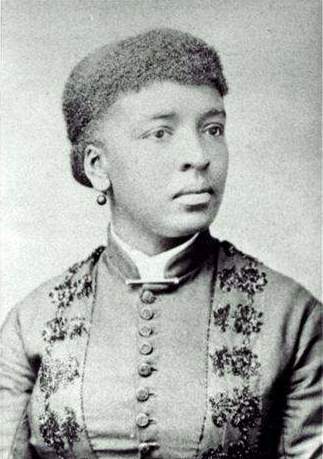
Dr. Louise Celestia “Lulu” Fleming (1862-1899)
Born into slavery in Clay County Florida. Dr. Louise Fleming briefly fled with her parents as an infant of just 6 weeks old, but her family was betrayed by a riverboat captain and returned to slavery. Her family found lasting freedom after the emancipation proclamation of 1865.
Dr. Fleming attended university and earned her degree from Shaw university in Raleigh, North Carolina. Dr. Fleming became the first African American to be commissioned for mission work in Africa by the Woman’s American Baptist Foreign Missionary Society, and went to work in the Congo (now known as The Democratic Republic of the Congo).
She ministered there as a primary and English teacher, often sending students to the USA to attend Shaw university.
After five years of serving in the Congo, Dr. Fleming returned to the states due to severe illness. As she recovered, Dr. Fleming noted that access to medical care in the Congo was severely limited. This led her to pursue a medical degree through The Women’s Medical College in Philadelphia. Dr. Fleming was the first African American woman to attend this school.
Upon her graduation from medical school in 1895, Dr. Fleming was sent back to the congo by Women’s Missionary Foreign Mission Society. There she served as the only Black doctor in the Bolengi Station of the Upper Congo.
After 4 years, Dr. Fleming, sadly, contracted African Sleeping Sickness which forced her to return to Philadelphia. She passed away on June 20, 1899 at the age of 37.
Sources: https://crsj.org/dr-louise-celia-lulu-fleming/, https://www.blackpast.org/african-american-history/fleming-louise-celia-lulu-1862-1899/, https://internationalministries.org/black-heritage-in-mission-louise-fleming/
Dr. Theophilus E.S. Scholes (1858-1940)
Born in Jamaica in the mid 1850s, Dr. Theophilus E.S. Scholes spent his life serving God as a baptist missionary, pursuing justice as a political commentator, and caring for others as a medical doctor. Dr Scholes was also a prolific author, writing multiple texts refuting British imperialist and racist ideologies of the day:
- Sugar and the West Indies in 1897
- The British Empire and Alliances in 1899
- Chamberlain and Chamberlainism (under the pseudonym Bartholomew Smith) in 1903
- Glimpses of the Ages, Vol. 1 in 1905 and Vol. 2 in 1908
After leaving Jamaica in 1873, Dr. Scholes spent years travelling the globe before moving to Great Britain in 1877 to study theology. Following his theological studies, Dr. Scholes then relocated to Scotland where he earned his doctor’s license at the Royal College of Physicians and Surgeons in 1884. He would later earn a subsequent medical degree at the Unversity of Brussels.
In 1894, Dr. Scholes would be called to serve in Africa as the supervisor of a school, run by the Alfred Jones Institute, in Nigeria.
Sources: https://en.wikipedia.org/wiki/Theophilus_Scholes, https://www.encyclopedia.com/history/encyclopedias-almanacs-transcripts-and-maps/scholes-theophilus
Were any of these names new to you? Let us know in the comments!!
The inspiration for this blog post is credited to the Black Mission Legends deck of cards purchased from our partner, NAAMC. Here is their description:
“On each of the 52 custom cards you’ll learn about a Black or African American missionary from the last three centuries. Use them for fun or an icebreaker for Kingdom conversations! A portion of every sale goes to supporting NAAMC and the Missionary Award Program that funds sending African Americans out!”
Learn more and get your own deck here.

